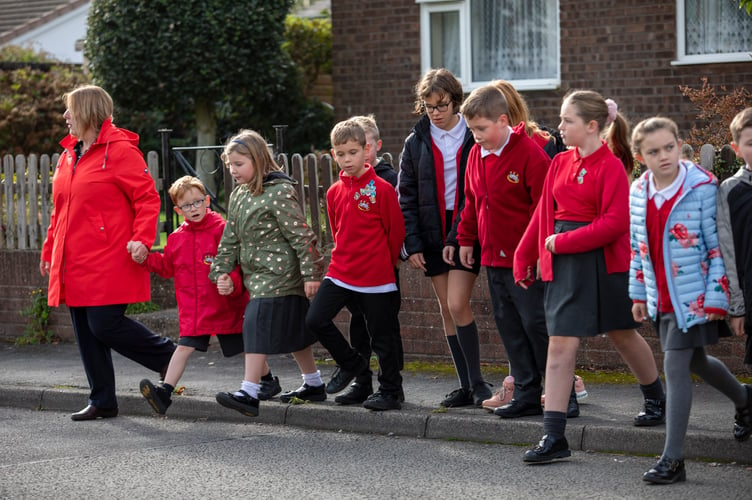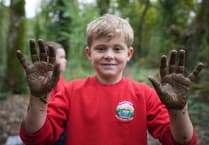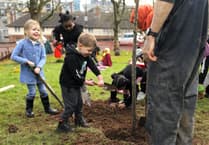Only around 50 per cent of primary school children in Wales walk to school, but Living Streets Cymru is working to reverse the decline in walking rates.
Thousands of children across Wales will enjoy the benefits of walking to school thanks to support from the Welsh Government.
A two-year project will enable Living Streets Cymru, part of the UK charity for everyday walking, to engage 170 primary schools and 42 secondary schools in its walk to school programmes in Wales by September 2025.
WOW – the walk to school challenge from Living Streets – sees pupils record how they get to school using the interactive WOW Travel Tracker with those who walk, wheel, cycle, scoot or ‘Park and Stride’ to school being awarded a monthly WOW badge.
WOW schools typically see an increase in walking rates by 23 per cent with a 30 per cent reduction in cars driving to the school gates.
There are already 70 schools taking part in WOW in Wales.
Stephen Edwards, Chief Executive, Living Streets said:
“Walking to school is such an important part of the day for children and their friends and family and I’m delighted that Living Streets Cymru will be able to help even more young people in Wales stay fit, healthy and happy.
“We are incredibly grateful to the Welsh Government for supporting WOW. Walking or wheeling to school is an easy and inexpensive way for children to meet the recommended 60 minutes of physical activity a day, while helping reduce congestion and air pollution outside the school gates.
“I can’t wait to see what a positive difference WOW – and the introduction of 20mph speed limits on residential roads in Wales – will make to children walking and wheeling to school in Wales.”
Lee Waters, Deputy Minister with responsibility for transport, said:
“Schemes like WOW are a step in the right direction to improving our health and wellbeing and reducing the number of cars on our roads.
“I’m really pleased that more schools across Wales will be taking part in WOW. Continued investment in active travel will help us build safer and stronger communities for our children.”




